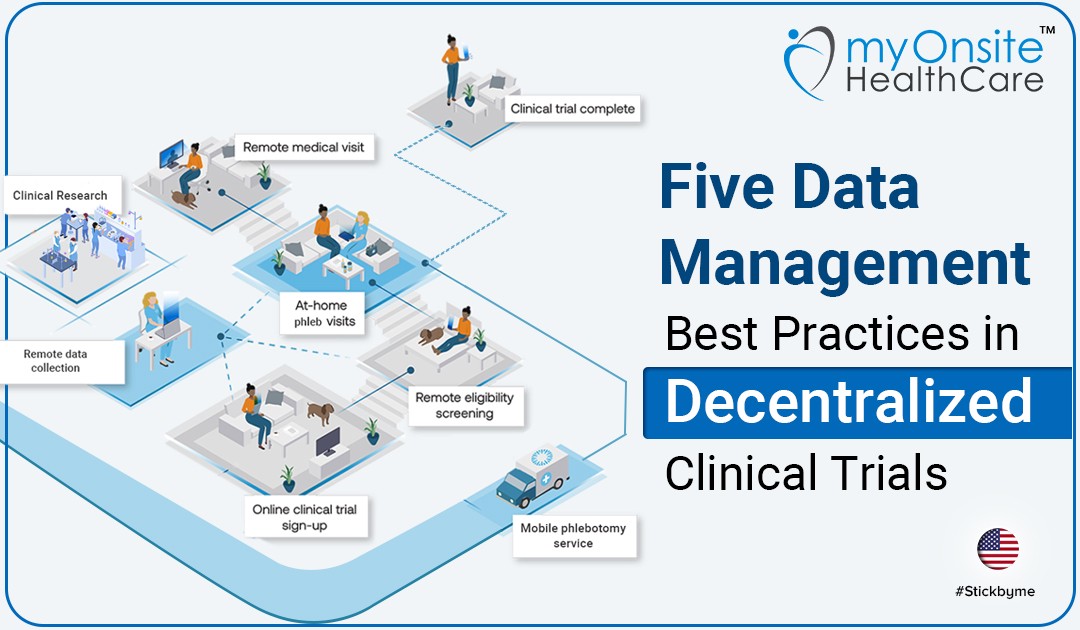Decentralized clinical trials (DCTs) are quickly becoming the new standard for conducting clinical research. DCTs have numerous benefits, including increased patient engagement and reduced burden on patients. However, with decentralized trials comes the need for effective data management practices. In this blog, we will explore five data management best practices for DCTs.
Centralized Data Management
One of the key challenges in decentralized clinical trials is ensuring that data is collected and managed effectively. One way to address this challenge is through centralized data management. This approach involves storing all data in a centralized location, which can help to ensure that data is consistent, accurate, and secure. A centralized data management approach can also improve efficiency by enabling real-time data monitoring and reducing the need for manual data entry. Cloud-based Centralized Data Management must be highly secure.
Use of All-in-One Electronic Data Capture (EDC) / Clinical Trial Management Software (CTMS)
There are several Products available in the Market. However, it is important to assess the software which can help manage the study and all its stakeholders with ease and flexibility. EDC enables data to be collected electronically and stored securely in a centralized location. This helps ensure that data is accurate and complete and can streamline data collection and analysis. EDC can also reduce the risk of errors associated with manual data entry.
Data Quality Management
Data quality management is another critical data management best practice for DCTs. This involves implementing processes and procedures to ensure data is accurate, complete, and consistent. This can be achieved through data validation, verification, and cleansing. By providing that data is of high quality, researchers can have confidence in their results and make informed decisions based on the data.
Results Device Integration Capabilities with Real-Time Data Monitoring
In decentralized clinical trials, it is essential to monitor data in real time to identify any issues or trends as they arise. There are several studies that will require vital signs, PT/INR, and POCT testing devices, with results to be analyzed in real-time. Software with Result Device Integration capabilities will be a critical feature that will help in Remote Decentralized Trials. This can improve the efficiency of the trial and reduce the risk of errors or delays. Real-time monitoring can also ensure that data is accurate and complete and enable researchers to adjust the trial as needed.
Compliance with Regulatory Requirements
Compliance with regulatory requirements is critical in any clinical trial, and DCTs are no exception. Data management practices must be designed to ensure compliance with regulatory requirements, including data privacy, security, and confidentiality. It is important to work closely with regulatory agencies to ensure that all requirements are met and to implement appropriate controls to protect data. It is highly important to ensure the software has all the compliance features with 21 CFR Part 11 and GDPR depending on the region.
Conclusion
Effective data management is critical for the success of decentralized clinical trials. Researchers can ensure that data is accurate, complete, and secure by implementing best practices such as centralized data management, electronic data capture, data quality management, real-time data monitoring, and compliance with regulatory requirements. These best practices can also help to streamline the trial process, reduce the risk of errors, and enable researchers to make informed decisions based on the data.

